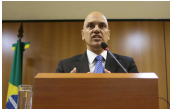题目内容
19.A Special AppointmentYears ago I moved to Woodland Hills to take a job in a small hospital's emergency department.No one wanted to work on Christmas Eve,so the shift(轮班) went to me.I kissed my family goodbye and went off to spend the night in the hospital.It was a thankless job.
At 9pm,the ambulance brought in a man in his 60s who was having a heart attack.His face was pale,and he was frightened.The whole night I did my best to save his life.Before I left in the morning to spend Christmas with my family,I stopped by to see how he was doing.It was still tough,but he had survived the night and was sleeping.
The following year I got Christmas Eve duty again.At 9pm sharp,the ward clerk told me there was a couple who wanted to speak with me.When I approached them,the man introduced himself as Mr.Lee and said,"You probably don't remember me,but last Christmas Eve you saved my life.Thank you for the year you gave me."He and his wife hugged me,handed me a small gift,and left.
The following year a new doctor had joined the group,but I wanted to see if Mr.and Mrs.Lee would return.This time,I volunteered for the shift.I kept an eye on the door.Once again,at exactly 9pm,the Lees appeared,carrying a warmly wrapped bundle.It was their new grandchild.Mr.Lee,his family and I spent 13Christmas Eves together.In the later years the staff all knew about the story and would work to give me time with him in the break room,where we spent a half-hour each Christmas Eve.
The last year I saw him,he brought me a gift.I carefully opened the package and found a crystal (水晶) bell inside.It was engraved (镌刻) with a single word:Friendship.Now,my family,friends and I ring that bell every Christmas Eve at exactly 9pm and offer our best wishes to the man who we won't forget.
21.Working on Christmas Eve was considered"a thankless job"becauseD.
A.most patients were seriously ill
B.patients refused to express thanks
C.doctors had nothing to do on that day
D.doctors couldn't get praise for the hard job
22.When the author left the hospital the next morning,Mr.LeeA.
A.was still in a state of danger
B.was really angry with her
C.got ready to leave the hospital
D.recovered from his heart attack
23.According to the passage,the author formed a habit ofC.
A.celebrating Christmas Eve with her family
B.giving Christmas gifts to the hospital staff
C.spending Christmas Eve with Mr.Lee in hospital
D.ringing the bell for patients in the emergency department
24.Why does the author ring the bell on Christmas Eve?C
A.To honor her working experience.
B.To tell kids the traditional custom.
C.To remember an old friend of hers.
D.To show the beginning of the holiday.
分析 本文属于记叙文阅读,作者通过这篇文章向我们介绍了一个特别的约会,作者在圣诞节前夕值班的时候挽救了李先生的生命,从此以后每个圣诞节李先生都会来医院同作者一起度过圣诞节,作者也会一直记得李先生.
解答 21.D 推理判断题,根据第一段Years ago I moved to Woodland Hills to take a job in a small hospital's emergency department.No one wanted to work on Christmas Eve,so the shift(轮班) went to me.I kissed my family goodbye and went off to spend the night in the hospital.It was a thankless job.可知作者认为在圣诞节前夕工作吃力不讨好是因为这个时候医生们辛勤工作也不会得到赞扬,故选D.
22.A 细节理解题,根据第二段Before I left in the morning to spend Christmas with my family,I stopped by to see how he was doing.It was still tough,but he had survived the night and was sleeping.可知在第二天作者离开医院的时候,李先生仍然处于危险状态中,故选A.
23.C 推理判断题,根据倒数第二段Once again,at exactly 9pm,the Lees appeared,carrying a warmly wrapped bundle.以及最后一段The last year I saw him,he brought me a gift中可知李先生每个圣诞夜都会来医院由此推知作者已经形成了和李先生在医院里度过圣诞夜的习惯,故选C.
24.C 细节理解题,根据最后一段Now,my family,friends and I ring that bell every Christmas Eve at exactly 9pm and offer our best wishes to the man who we won't forget.可知作者在圣诞节前夕按响铃声是为了纪念她的老朋友,故选C.
点评 考查学生的细节理解和推理判断能力.做细节理解题时一定要找到文章中的原句,和题干进行比较,再做出正确选择.在做推理判断题时不要以个人的主观想象代替文章的事实,要根据文章事实进行合乎逻辑的推理判断.

 中考解读考点精练系列答案
中考解读考点精练系列答案| A. | submit to | B. | subscribe to | C. | take to | D. | apply to |
| A. | effects | B. | concern | C. | protection | D. | attitudes |
-Definitely not,but must be paid to the global climate change.( )
| A. | attention | B. | care | C. | contact | D. | influence |
| A. | get down | B. | get off | C. | get through | D. | get into |
| A. | before | B. | until | C. | if | D. | unless |
 RIO DE JANEIRO--Brazil's federal(联邦) police have arrested 10people(61)for allegedly(据说) planning terrorist attacks during next month's Olympic Games in Rio de Janeiro.
RIO DE JANEIRO--Brazil's federal(联邦) police have arrested 10people(61)for allegedly(据说) planning terrorist attacks during next month's Olympic Games in Rio de Janeiro.